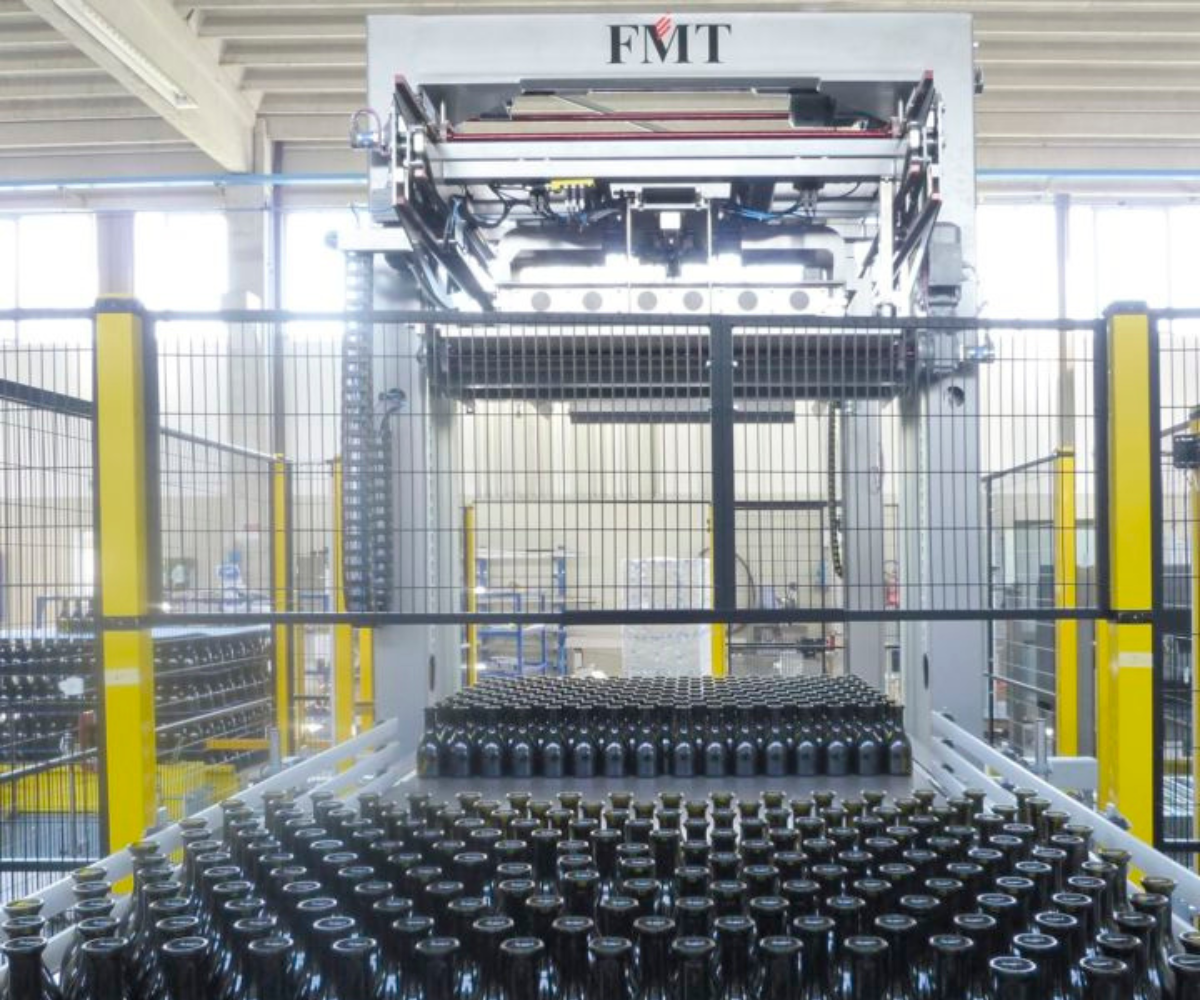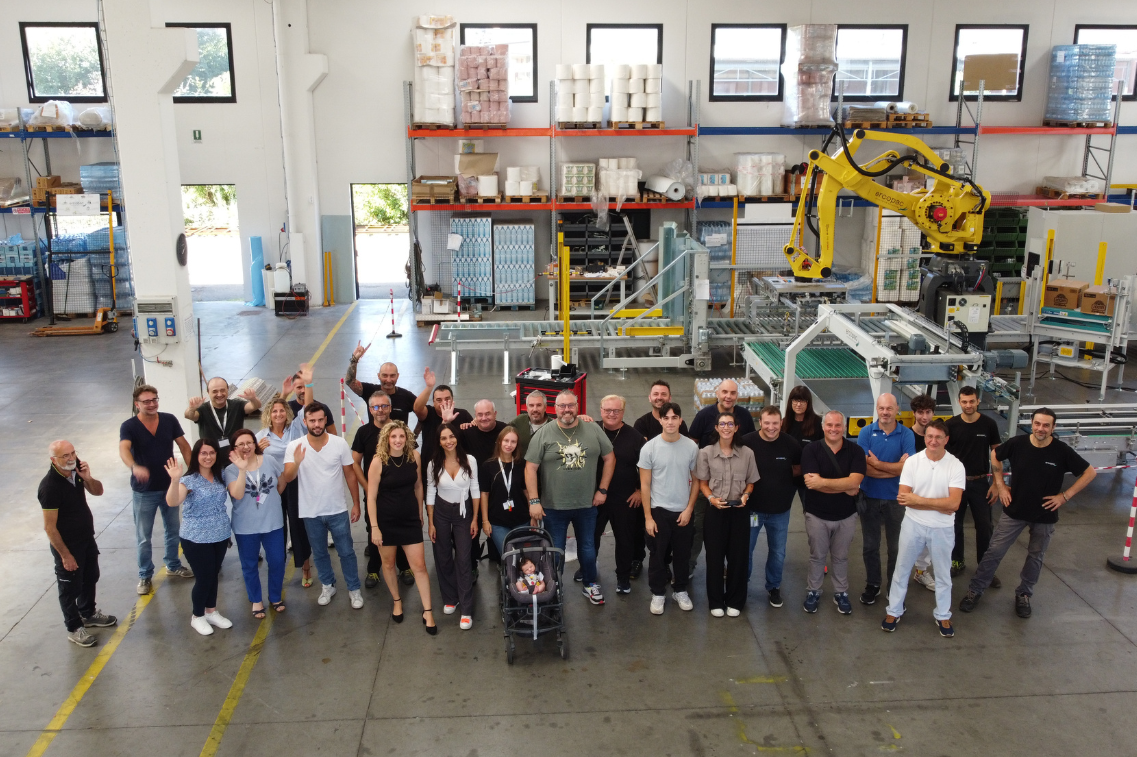ZANASI: so much more than an industrial marking system

Ethical consumption, ease of use, reliability, and efficiency form the guiding philosophy behind industry leader ZANASI, which will be at IPACK-IMA showcasing a range of unique advantages for the industrial marking market. General manager Andrea Zanasi talked to us about.
How important is IPACK-IMA for you?
“The IPACK-IMA fair is aimed at all machine manufacturers” he began, “which means that, as manufacturers of marking equipment, we are attracted by its cross-sectoral appeal. At the same time, however, we are also drawn in by the focus on food and beverages, which has always been a key area for the fair. At Ipack-Ima then, we have the opportunity to meet our customers but also to make contact with OEMs. It is a unique occasion for networking, enabling the exchange of different experiences to help envision future solutions. Not only that, it offers the opportunity to present our solutions to the market, highlighting the importance of industrial marking as a driver of innovation and a catalyst for efficiency and competitive advantage.”
What market trends are you seeing?
“First of all, let’s talk about automation and digitalisation, since our markers are part of a larger, more integrated system. They allow users to extract value from data and verify its integrity and quality. “- continued Mr Zanasi. “When a printer is integrated into a production line, errors can be reduced through feedback from the marker, which helps monitor for critical issues. This is possible because our solutions are integrated into ERP and MES software, which effectively turns them into sensors so that, in addition to marking products, they also provide feedback on production efficiency. The next key area is efficiency, which is attributable to the sensors and carefully designed usability of our solutions, leading to fast setup times and a drastic reduction in machine downtime.
What's more, as the developer of a range of environmentally certified inks, ZANASI is the only player in the market to offer certified sustainability and an ethical approach to the environment. We tackle important issues through our commitment to reducing waste and extending the life of our machines beyond common commercial practices.
Lastly, the core concepts that underpin our business are traceability and safety. Our sector plays an essential role in guaranteeing product authenticity while also protecting consumers. The advantage of our technology is that it allows printing on challenging surfaces and in harsh environments, such as bottling lines. In situations like these, where the moisture makes it difficult for the inks to adhere to the surfaces, running ink jeopardises traceability of the product along the supply chain. This technical complexity is also shared with recycled or compostable materials, which pose challenges that need to be overcome to ensure that packaging made of these materials is disposed of correctly when no longer required.
What impact do sustainability and digitalisation have on your production?
“Combining inks and sustainability is often difficult,” commented Andrea Zanasi “which is why our in-house R&D team has developed the Thinkz range that makes us unique on the market. Our marking solutions, which are certified according to the TUV (SÜD) "OK compost" and "OK biobased" schemes, do not affect packaging compostability. This guarantees the recycling chain and makes a packaging item's sustainability objective and measurable until the end of its life. Another plus that sets ZANASI apart from its competitors is the management of consumables, on which we have worked to reduce plastic by 50% with the same capacity. We choose sustainability because we believe it is the right choice, not because of a bandwagon or a legal requirement. Reducing consumption while maintaining the same efficiency is a core principle of our business.”
The lifetime of a product, whether it is a consumable or a marker, is central to ZANASI, which designs modular, configurable, and scalable solutions that keep pace with the development of its customers’ business.
“Ever-increasing configurability, ease of use, and repairability mean our markers are tools that are designed to last, in particular due to easy replacement of components subject to wear.” continued Andrea Zanasi. “In contrast to market trends, we aim for products that can last up to twenty years against an average life of five. We are confident that a satisfied customer will not leave our brand, since they align with the concepts of quality and business ethics for which we are known. We do not produce standard solutions. Our solutions are modular and can be configured according to the use the customer will be making of it, with options to design an optimal layout based on the production arrangement into which the markers will be integrated.”
Focusing now on digitalisation, as already mentioned, markers are drivers of efficiency and sustainability due to both their primary function, i.e. marking, and their secondary function, i.e. as a production sensor that can provide feedback that is useable for analysis. Andrea Zanasi elaborated on this aspect:
“We are talking about interconnected, integrated systems, in line with Industry 4.0, that receive production information and provide feedback on the number of pieces, errors, and machine downtime, which can be useful for detecting critical issues on the line. Our software platform is vital for this aspect and is transversal to all marking technologies. Orkestra, our proprietary software, which is deployed across all ZANASI machines, is developed entirely in house and leverages customised configurations to enhance performance according to customer requirements. A usability study involving professional and non-professional users allowed us to test the high level of ease in accessing our machines, which showed learning times 70% lower than rival solutions. The benefits here are clear when it comes to staff training commitments, in these times of high turnover and difficulty in finding human resources. The usability issues and ensuing inefficiency result in a high risk of rejects, which the usability study we carried out reduces, making the interface an additional driver of production line efficiency. That is why at ZANASI we can proudly state that we innovate to make industrial marking simple, sustainable, and connected.”
Corporate ethics focussing on personnel and identity
A final note on HR management. In this area, which offers a high concentration of top-end businesses operating in automotive, ceramics, and packaging, the challenges in finding qualified personnel are particularly tangible.
“Our HR policy is based on core values,” concluded Mr Zanasi, “which are clearly conveyed in our internal communication, so that the people who join us can understand and share our values. Through a series of workshops, we also work on team communication, on turning dissatisfaction into an opportunity for discussion and mistakes an opportunity for growth, on identifying weak points to generate value through reflection on and discussion of innovation and its concepts, and also on collaboration and satisfaction, the underlying tenets of business at ZANASI.”





